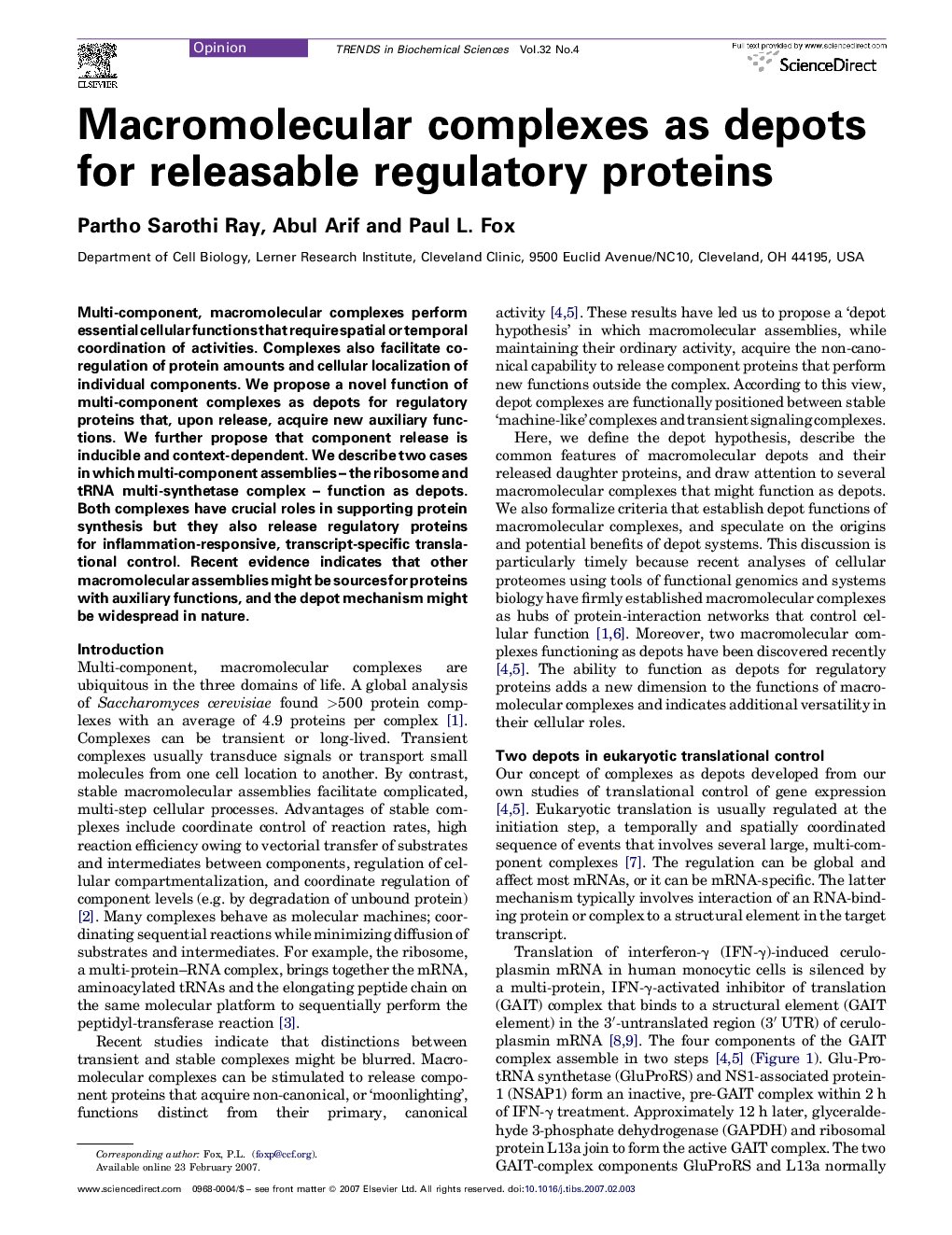| Article ID | Journal | Published Year | Pages | File Type |
|---|---|---|---|---|
| 2031781 | Trends in Biochemical Sciences | 2007 | 7 Pages |
Multi-component, macromolecular complexes perform essential cellular functions that require spatial or temporal coordination of activities. Complexes also facilitate co-regulation of protein amounts and cellular localization of individual components. We propose a novel function of multi-component complexes as depots for regulatory proteins that, upon release, acquire new auxiliary functions. We further propose that component release is inducible and context-dependent. We describe two cases in which multi-component assemblies – the ribosome and tRNA multi-synthetase complex – function as depots. Both complexes have crucial roles in supporting protein synthesis but they also release regulatory proteins for inflammation-responsive, transcript-specific translational control. Recent evidence indicates that other macromolecular assemblies might be sources for proteins with auxiliary functions, and the depot mechanism might be widespread in nature.
